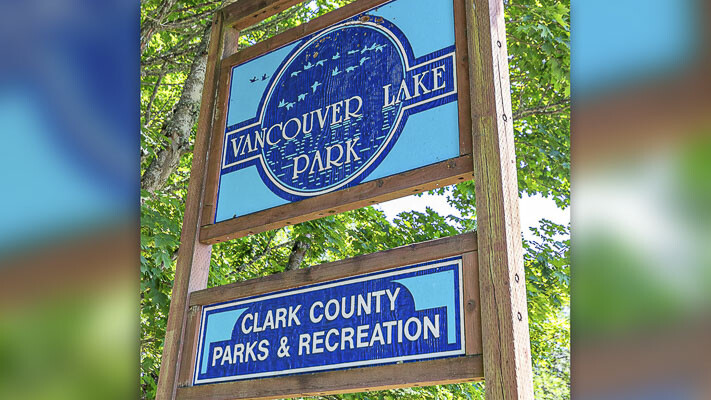
Four of six water samples showed elevated levels of E. coli bacteria, prompting Public Health to close the lake to swimming and wading
VANCOUVER – Clark County Public Health is closing the Vancouver Lake swim beach due to elevated levels of E. coli bacteria. Some E. coli bacteria can cause serious gastrointestinal illness if water is accidentally swallowed.
Public Health issued a warning for the swim beach on June 2 when one water sample collected during routine testing showed elevated levels of E. coli bacteria. Public Health collected additional water samples from the swim beach on Monday and received results today. Four of six water samples showed elevated levels of E. coli bacteria, prompting Public Health to close the lake to swimming and wading. People who fish at Vancouver Lake should take precautions to avoid water contact and should thoroughly clean all fish and equipment.
Public Health will collect additional water samples on Monday. The closure will remain in effect until tests show that E. coli bacteria levels do not exceed state and US Environmental Protection Agency guidelines. Public Health will advise the public when water contact is considered safe again. Test results and information about current advisories are posted on the Public Health public beaches website.
Public Health also continues to monitor a bloom of harmful algae at the Vancouver Lake swim beach. Test results have so far shown toxin levels are below thresholds that would prompt an advisory for the algae. However, as long as blooms of harmful algae are present, toxin levels can change as the weather and lake conditions change. People should avoid areas of floating scum when recreating in the water, and pets should not go into or drink the water.
Vancouver Lake Regional Park remains open. Water in park restrooms and shelters is not affected by lake water and remains safe to drink.
Information about E. coli
E. coli is a common kind of bacteria that lives in the intestines of animals and people. The presence of E. coli in Vancouver Lake water indicates that the water may contain bacteria found in animal or human feces. Some of these bacteria are capable of causing severe gastrointestinal illness.
Depending on the cause, people with gastrointestinal infections may experience fever, abdominal pain, nausea, vomiting and/or diarrhea beginning several hours to several days or longer after exposure. Some infections may cause bloody diarrhea.
People who experience bloody diarrhea or persistent gastrointestinal symptoms should call their physician or other health care provider.
Information provided by Clark Co. WA Communications.
Also read:
- POLL: Should the Clark County Clerk remain an elected position?Following public opposition, Clark County Council dropped a proposal to make the clerk an appointed role. Readers can now weigh in through this week’s poll on whether the clerk should remain elected.
- Public comment prevails: No action taken on Clerk agenda item at Clark County Council meetingClark County Council declined to advance a proposal to make the County Clerk position appointed, deferring the issue to the Charter Review Commission after public concerns over transparency.
- Opinion: Neighbors for a Better Crossing calls for a current seismic study for $7.5 Billion Interstate Bridge projectNeighbors for a Better Crossing is urging a new seismic study before construction proceeds on the $7.5 billion IBR project, raising transparency concerns and proposing an immersed tube tunnel alternative.
- Opinion: Washington’s Supreme Court hides the ball on state employee compensation offersJason Mercier criticizes the Washington Supreme Court’s decision to uphold secrecy in public employee compensation talks, calling for transparency reforms and public accountability.
- Vancouver Clinic begins major expansion in Vancouver-CamasVancouver Clinic has begun work on a new 45,000-square-foot medical facility in east Clark County, aiming to expand specialty and primary care services by 2027.
- WA governor commits to backfilling Planned Parenthood funding cut by CongressGov. Bob Ferguson pledged to replace $11 million in Medicaid funds cut from Planned Parenthood by Congress, promising to protect patient access if federal support isn’t restored.
- Rep. John Ley supports C-TRAN Bus Rapid Transit to save Washington moneyRep. John Ley praised C-TRAN’s new BRT line as a faster, lower-cost alternative to light rail, urging support for transit options that save taxpayers money and improve service.











